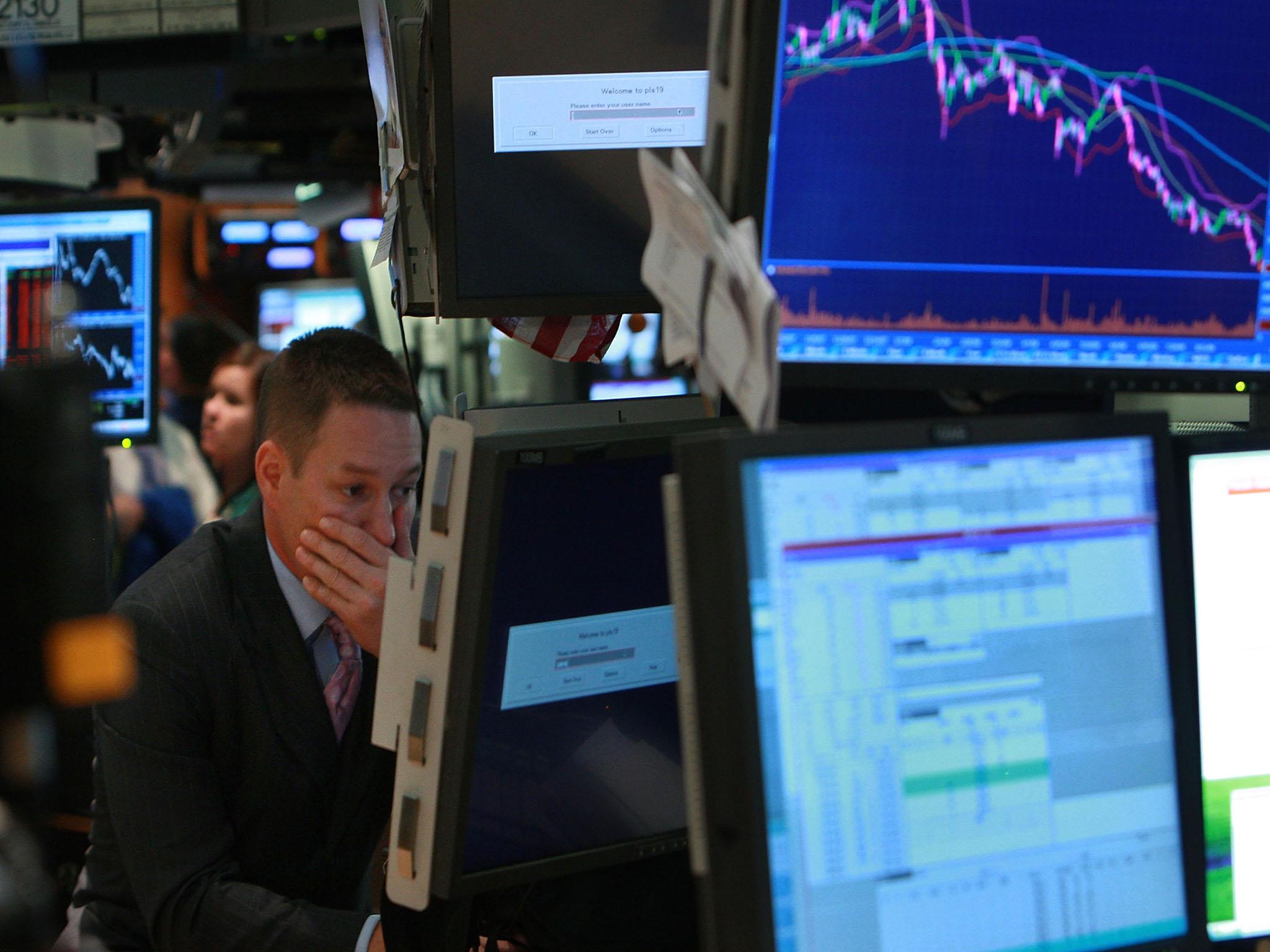US rolls back on Wall Street reforms as memories of the financial crisis fade

Your support helps us to tell the story
From reproductive rights to climate change to Big Tech, The Independent is on the ground when the story is developing. Whether it's investigating the financials of Elon Musk's pro-Trump PAC or producing our latest documentary, 'The A Word', which shines a light on the American women fighting for reproductive rights, we know how important it is to parse out the facts from the messaging.
At such a critical moment in US history, we need reporters on the ground. Your donation allows us to keep sending journalists to speak to both sides of the story.
The Independent is trusted by Americans across the entire political spectrum. And unlike many other quality news outlets, we choose not to lock Americans out of our reporting and analysis with paywalls. We believe quality journalism should be available to everyone, paid for by those who can afford it.
Your support makes all the difference.“Never again!
That’s the cry that inevitably follows a traumatic event like, say, the financial crisis of 2008 when there was a very real prospect of the world’s financial system coming crashing down.
Had it happened, the Wall Street Crash of 1929 might have looked like no more than a minor correction. The political fall out hardly bears thinking about.
To stave it off, Western Governments spent billions of dollars, euros and pounds of their taxpayers money to prop the system up. As the price for that, while there was an abject failure to jail any bankers, their wings were at least clipped through the regulatory reforms that were enacted.
Sadly, as any student of history will realise, ‘it’ usually does happen again, often entirely avoidably through people quietly discarding them.
The US is in the throes of doing just that.
The corporate wing of the Democratic Party has crossed the floor to line up with Republicans in support a package of measures designed to de-regulate Wall Street and make life easier for the country’s banking industry.
A couple of dozen smaller banks will escape the scrutiny they are currently subject to through the threshold of assets they have to pass to be considered too big to fail being dramatically raised from $50bn to $250bn.
“Buried in the detail,” opined Senator Elizabeth Warren, “are more landmines for the American family.”
And indeed there are. You don’t need to take her word for that, or even mine.
The US Congressional Budget Office, having run through the financial impact of the bill’s proposals, opined that they would make a crash more likely.
The chances of it happening still remain small. But then, weren't chances of the credit markets drying up leading to runs on banks and a string of failures supposed to be infinitesimally small. Until it happened. And then all the bankers lined up to say “no one could have predicted it”.
America's Dodd-Frank reforms did things like making it harder for banks to borrow money to place bets. It forced stress tests on them to ascertain how they would cope with the roof falling in, and generally tightened up supervision.
They were enacted through an unwieldy and horribly complex piece of legislation, as these things inevitably are. But it’s impossible to argue against the good intent of the authors, good intent that may now be squandered.
The lower House of Representatives, and its misnamed Republican “freedom” caucus in particular, wants to gut them still further.
There is speculation that if it does it may give the Democrats in the Senate pause, making it harder to get an agreed version to the desk of Donald Trump, who has promised to sign it. But memories are so terribly short.
It goes without saying that is the same Donald Trump who railed against bankers during his campaign only to hire a bunch of them afterwards. Goldman Sachs alumni were, as they always are, well represented amongst them.
Main Street USA fell for the pitch of Mr Trump, and others, who berated bankers and the Wall Street elites in their campaigns, only to see them bow down before them as they always have upon assuming office. They talk about the need to get the economy moving to help Main Street.
But if it all goes wrong it will be Main Street that will pay. Just as it paid last time.
Join our commenting forum
Join thought-provoking conversations, follow other Independent readers and see their replies
Comments